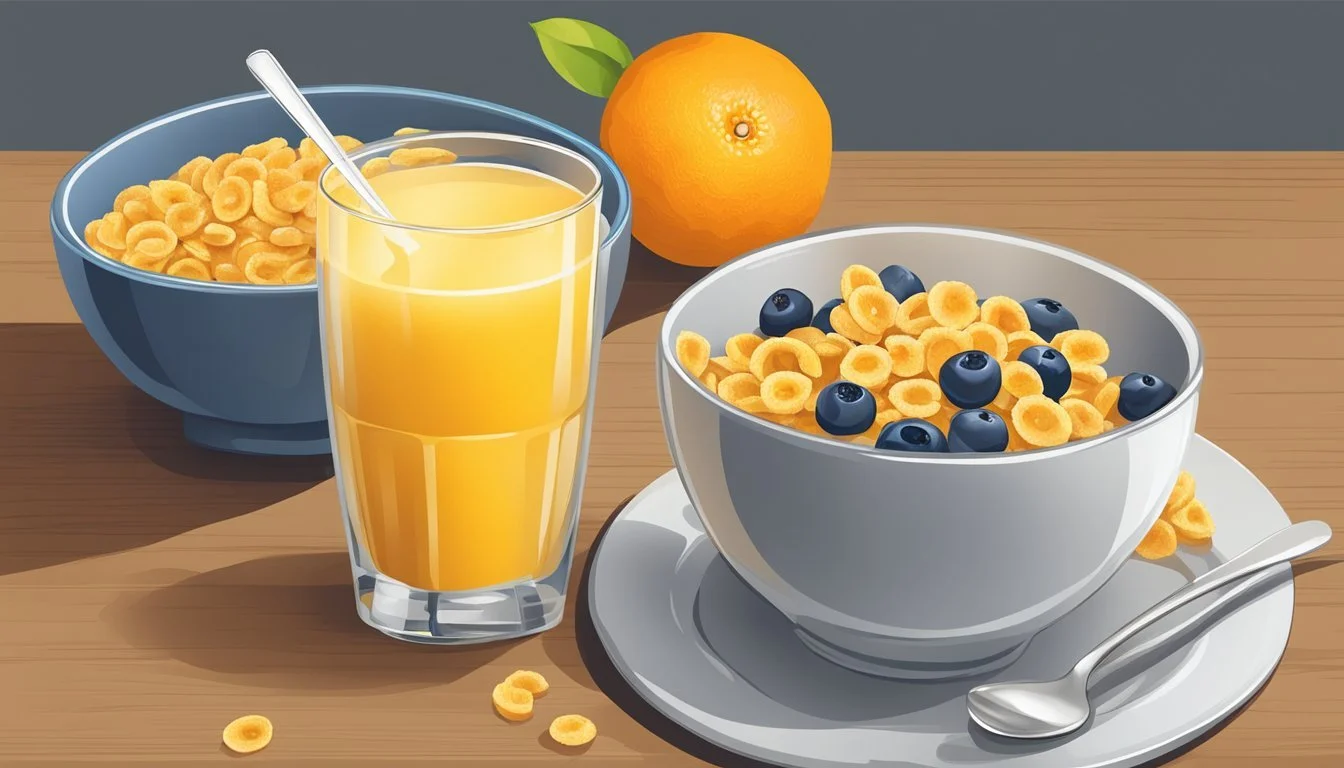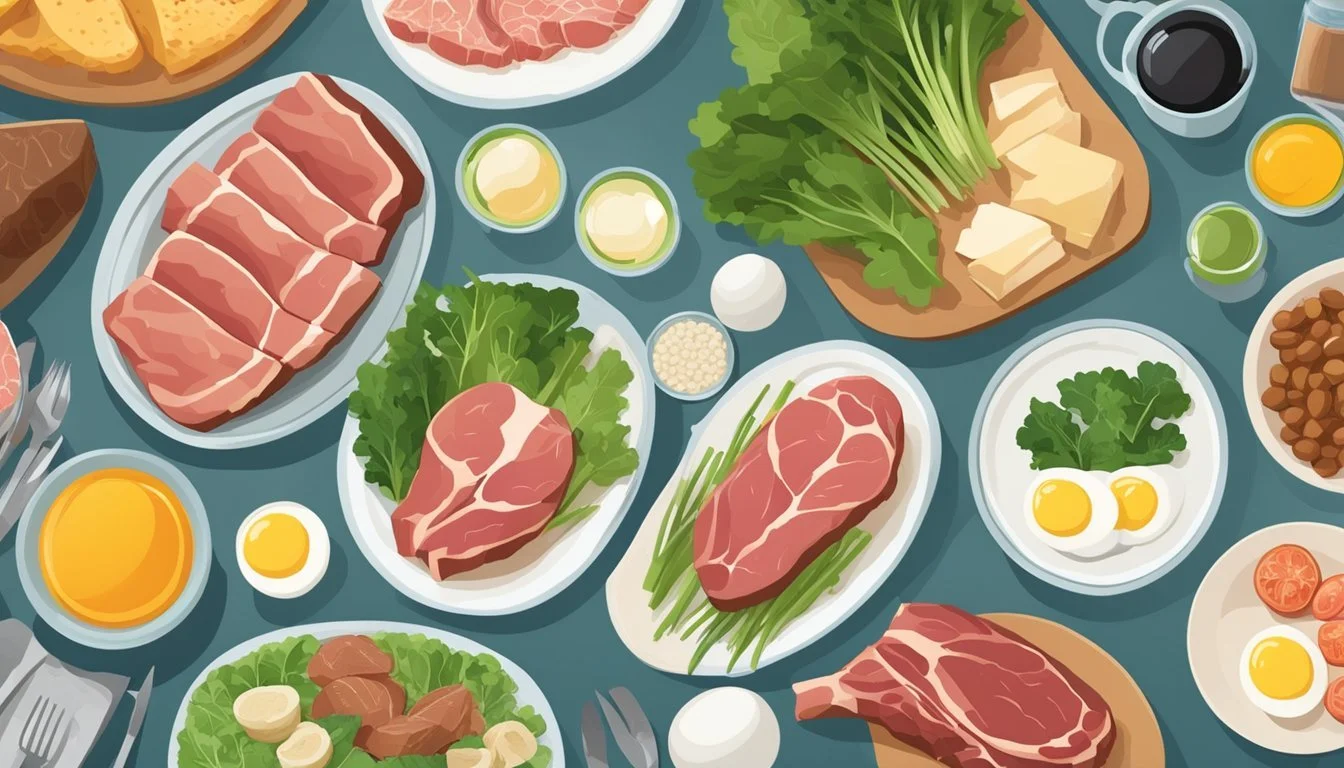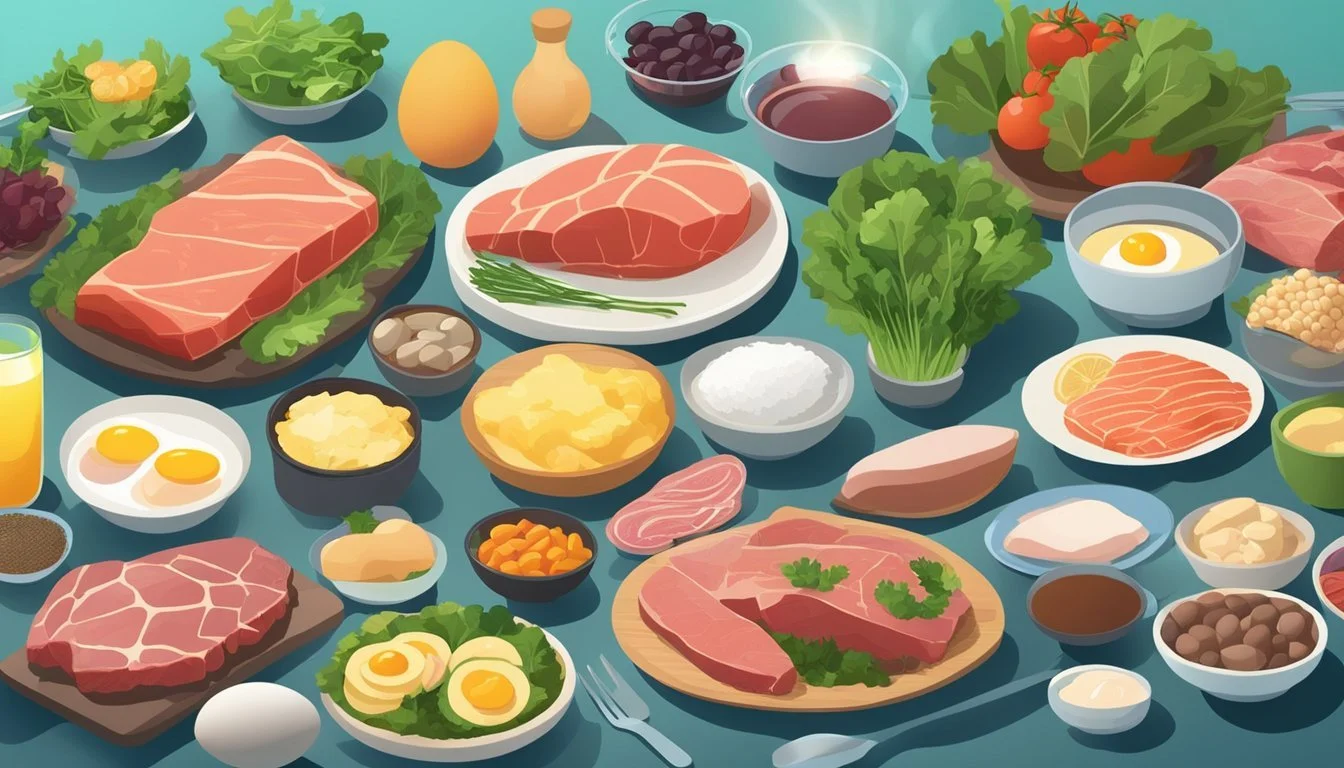Top Foods Rich in Vitamin B12 and Iron
Key Nutrients for Optimal Health
Maintaining a balanced diet rich in essential nutrients is vital for overall health and well-being. Among these nutrients, vitamin B12 and iron play crucial roles in vital bodily functions, including the formation of red blood cells and the proper functioning of the nervous system. Understanding which foods are high in vitamin B12 and iron can help individuals make informed dietary choices to support their health.
Certain foods are excellent sources of both vitamin B12 and iron, catering to diverse dietary preferences and needs. For individuals looking to boost their intake of these nutrients, incorporating a variety of meats, dairy products, and even plant-based options can be beneficial. Exploring the different food sources can guide individuals in creating a nutrient-rich diet that supports their overall health.
1) Beef liver
Beef liver is a nutrient-dense food that stands out for its high content of vitamin B12 and iron. This organ meat provides one of the richest sources of vitamin B12, with a 3-ounce serving offering 59 micrograms, significantly exceeding the daily recommended intake.
In addition to vitamin B12, beef liver is packed with iron. A 3-ounce serving contains 4.78 milligrams. This iron, combined with the high B vitamin content, supports energy production and helps in combating fatigue.
The synergy of B vitamins and iron makes beef liver an excellent option for boosting energy levels. These nutrients play a crucial role in oxygen transport, which is vital for overall health.
Beyond B12 and iron, beef liver is rich in other essential vitamins such as riboflavin, niacin, and folate. These contribute to various bodily functions, including DNA synthesis and red blood cell formation.
This combination of micronutrients underscores beef liver’s role in promoting overall wellness. However, it's advised to consume it in moderation, especially for pregnant individuals, due to its high vitamin A content.
2) Clams
Clams are an excellent source of both vitamin B12 and iron, making them a nutritious choice for those looking to boost their intake of these essential nutrients.
A typical serving of clams, about 6 ounces, provides more than 130% of the Recommended Daily Intake (RDI) for iron. This is an impressive amount, considering the crucial role iron plays in oxygen transport and various metabolic processes.
In addition to iron, clams are incredibly rich in vitamin B12. This vitamin is vital for maintaining healthy nerve cells and producing DNA. A small serving of clams can offer a significant portion of the daily requirement, supporting nerve function and overall energy levels.
Clams also contain other essential nutrients like selenium and zinc. These minerals contribute to immune function and cellular metabolism. The combination of these nutrients makes clams an excellent food choice for maintaining good health.
With their high-quality protein content, clams are not only nutrient-dense but also suitable for various dietary lifestyles, including paleo. They provide a complete protein source without the high levels of saturated fat found in many meat products.
Including clams in the diet can provide substantial health benefits, particularly for those needing to increase their intake of vitamin B12 and iron. Their versatile use in different dishes makes them a convenient and delicious option.
3) Oysters
Oysters are a significant source of both vitamin B12 and iron, making them an excellent choice for boosting these essential nutrients. Their vitamin B12 content is particularly notable, as it plays a crucial role in nerve function and the production of DNA and red blood cells.
In terms of iron, oysters provide a highly bioavailable form which is better absorbed compared to plant-based sources. This makes them effective in preventing iron deficiency anemia. Just a three-ounce serving of oysters contains around 7.8 mg of iron, which is approximately 43% of the recommended daily intake.
Additionally, oysters offer an array of other nutrients such as zinc, selenium, and high-quality protein. These elements collectively support immune function, antioxidant defense, and muscle metabolism. Oysters are also relatively low in calories, which makes them a nutrient-dense food option.
For those looking to incorporate oysters into their diet, they can be consumed both raw and cooked. Regardless of preparation method, they retain most of their nutritional benefits and can be an exciting addition to various dishes.
4) Turkey
Turkey stands out as an excellent source of both vitamin B12 and iron, making it a valuable addition to a balanced diet.
A 3-ounce serving of cooked turkey liver is particularly rich in B12, providing 23.9 micrograms. This is significant considering the recommended daily intake.
In addition to its high B12 content, turkey also offers iron. Cooked ground lean turkey, for instance, contains around 1.6 micrograms of B12 per 3 ounces.
Incorporating turkey into meals can help address deficiencies in these essential nutrients. Its versatility in recipes makes it a convenient option for many people.
5) Chicken Breast
Chicken breast is a versatile and popular source of both vitamin B12 and iron.
A 6-ounce serving of lean cooked chicken breast provides about 5% of the daily value (DV) for iron. This makes it a useful option for those looking to boost their iron intake without consuming red meat.
Additionally, chicken breast contains a moderate amount of vitamin B12. While not as high as liver, it still contributes to daily nutritional needs. Approximately 3 ounces of cooked chicken liver, for example, provides 596% of the DV for B12, but chicken breast offers a lesser, yet significant contribution.
Eating chicken breast can support energy levels and overall health. It is also rich in protein, which is essential for muscle repair and growth. Chicken breast is a lean meat, helping to maintain low cholesterol levels while promoting essential nutrient intake.
For those monitoring their nutrient intake, chicken breast is an excellent addition to a balanced diet. It provides essential vitamins and minerals without excessive fats, making it suitable for various dietary preferences and health goals.
6) Fortified Cereals
Fortified cereals are excellent sources of vitamin B12 and iron. Many brands enhance their cereals with these nutrients to support a balanced diet. They make an easy and convenient breakfast option for those looking to increase their daily intake of B12 and iron.
For instance, Multigrain Cheerios offer 18 mg of iron and 100% of the daily value for vitamin B12 in just one serving. Similarly, Honey Bunches of Oats Honey Roasted provide 16.2 mg of iron and 100% of the daily value for B12 per serving.
Kellogg’s Corn Flakes and General Mills’ Total Corn Flakes also contain significant amounts of B12. These cereals typically provide between 2.7 mcg and 6 mcg of B12 per serving, making them valuable additions to the diet.
Malt-O-Meal High Fiber Bran Flakes, containing 8.2 mcg of vitamin B12 per serving, are another excellent option. Special K Original is another fortified cereal that is widely available and easy to incorporate into daily meals.
For those looking at both iron and B12 content, General Mills Multi-Grain Cheerios and Mills Whole Grain Total are favorable choices. They provide both nutrients in substantial quantities.
7) Trout
Trout is a nutrient-dense fish that offers significant health benefits. It is rich in both vitamin B12 and iron, making it a great choice for those looking to boost these essential nutrients in their diet.
A single serving of rainbow trout contains high levels of vitamin B12. This vitamin is crucial for maintaining healthy nerve cells and aiding in the production of DNA.
In addition to vitamin B12, trout provides a solid amount of iron. Iron plays a vital role in the production of hemoglobin, which is necessary for transporting oxygen in the blood.
Trout also boasts an impressive array of other nutrients, including selenium, potassium, and omega-3 fatty acids. These elements contribute to various aspects of overall health, from heart function to immune support.
The combination of high protein and low calorie content makes trout an excellent food choice for those looking to maintain a healthy lifestyle.
8) Mussels
Mussels are a nutritious addition to anyone's diet, packed with essential vitamins and minerals.
Rich in vitamin B12, they contribute significantly to the production of red blood cells and support cognitive health.
A typical serving of mussels also provides a good amount of iron, which is crucial for those at risk of deficiency, especially women.
These shellfish are not only rich in B vitamins but also contain vitamin A and E, contributing to overall health.
Furthermore, mussels are low in calories and high in protein, making them an excellent choice for those looking to maintain a healthy diet.
Including mussels in your meals can help boost your nutrient intake without adding unhealthy fats or excessive calories.
9) Tuna
Tuna is a well-known and highly nutritious fish that offers significant health benefits. Rich in vitamin B12 and iron, it contributes prominently to the daily requirements for these essential nutrients.
A three-ounce serving of canned tuna can provide up to 50% of the recommended daily vitamin B12 intake. This makes it an excellent choice for those looking to boost their B12 levels.
In addition to its B12 content, tuna is also a valuable source of iron. Consuming tuna can help in preventing iron deficiency, supporting healthy red blood cell production and reducing fatigue.
Tuna's nutrient profile makes it an attractive option for a balanced diet. It is commonly consumed in various forms, including fresh, canned, and frozen. Each form generally retains its high nutritional value.
People often appreciate tuna for its versatility in the kitchen. It can be used in sandwiches, salads, casseroles, and sushi, making it easy to incorporate into different meals.
Athletes and fitness enthusiasts frequently include tuna in their diets. Its high protein content, along with vital vitamins and minerals, supports muscle recovery and overall performance.
In conclusion, tuna stands out as a practical and accessible source of B12 and iron, fitting well into a variety of dietary preferences and health needs.
10) Sardines
Sardines are small, oily fish known for their high nutritional value. They are packed with essential vitamins and minerals, making them an excellent addition to a balanced diet.
A significant benefit of sardines is their high vitamin B12 content. Just one serving provides over three times the amount most people need in a day.
Sardines also stand out as a rich source of iron. A typical serving contains 16% of the recommended daily allowance.
In addition to B12 and iron, sardines are rich in vitamin D, selenium, and phosphorus. They provide heart-healthy fats and a good amount of protein, which aids in muscle growth and repair.
The bones in sardines are edible, offering a good source of calcium and magnesium. This contributes to their overall nutritional profile.
Sardines are accessible and versatile, making them easy to incorporate into different meals. Whether eaten straight from the can, added to salads, or mixed with pasta, they offer a simple way to boost nutrient intake.
Importance of Vitamin B12 and Iron
Vitamin B12 and iron are essential nutrients that play crucial roles in maintaining overall health. They contribute to the proper functioning of the body in several key ways.
Vitamin B12 is vital for the production of healthy red blood cells and DNA synthesis. It also supports the nervous system and helps maintain energy levels.
Iron is essential for the formation of hemoglobin, a protein in red blood cells that carries oxygen throughout the body. It also plays a role in energy production and immune function.
Without adequate vitamin B12 and iron, individuals can suffer from anemia, which leads to fatigue, weakness, and cognitive impairment.
Common sources of vitamin B12 include:
Red Meat (beef, pork)
Dairy Products (milk, cheese)
Fish and Shellfish (salmon, clams)
Fortified Cereals
Iron-rich foods include:
Red Meat
Dark Leafy Greens (spinach, kale)
Legumes (lentils, chickpeas)
Nuts and Seeds (pumpkin seeds, almonds)
For optimal absorption, it's beneficial to consume vitamin C alongside iron-rich foods. This combination enhances iron uptake in the body. Examples include pairing spinach with tomatoes or adding lemon juice to lentil dishes.
In summary, ensuring a diet rich in both vitamin B12 and iron is crucial for maintaining energy, cognitive function, and overall well-being.
Common Deficiency Symptoms
Deficiencies in Vitamin B12 and iron can lead to a range of symptoms that affect the overall well-being of an individual. This section outlines the key symptoms related to insufficient levels of these essential nutrients.
Vitamin B12 Deficiency Symptoms
Vitamin B12 deficiency can manifest in several physical and neurological symptoms. Individuals may experience extreme fatigue and weakness due to the body's reduced ability to produce healthy red blood cells.
Other common symptoms include:
Vomiting
Diarrhea
Loss of appetite
Weight loss
Neurological effects are also significant. These include numbness or tingling in the hands and feet, difficulty walking, memory loss, and mood changes such as depression.
Iron Deficiency Symptoms
Iron deficiency primarily causes symptoms related to reduced oxygen transport in the body. The most noticeable symptom is extreme fatigue, as the body struggles to get sufficient oxygen.
Additional symptoms to watch for include:
Weakness
Pale skin
Shortness of breath
Dizziness
Irregular heartbeats
Iron deficiency can also lead to cold hands and feet, brittle nails, and cravings for non-nutritive substances like ice or dirt (a condition known as pica).
Awareness of these symptoms can help in early detection and treatment of these nutrient deficiencies.
Absorption and Bioavailability
Both vitamin B12 and iron absorption can be influenced by several dietary and physiological factors, making their bioavailability variable depending on these conditions.
Factors Affecting Vitamin B12 Absorption
Vitamin B12 requires a complex absorption mechanism involving several stages. Firstly, B12 binds to proteins in the food and gets released in the stomach through hydrochloric acid and gastric enzymes.
Intrinsic factor, a glycoprotein produced in the stomach, is crucial for absorption. It binds to vitamin B12 and facilitates its absorption in the ileum of the small intestine. Malabsorption can occur due to conditions like pernicious anemia, where intrinsic factor production is impaired.
Certain medications, such as proton pump inhibitors and metformin, can also reduce stomach acid and impair B12 absorption. Finally, age and gastrointestinal surgeries significantly affect B12 bioavailability, necessitating careful monitoring and possibly supplementation in affected individuals.
Factors Affecting Iron Absorption
Iron absorption varies widely depending on the source — heme iron from animal products is more easily absorbed compared to non-heme iron found in plants. For instance, the absorption rate is 25–30% for organ meats and as low as 2% for dried legumes.
Dietary enhancers include ascorbic acid (vitamin C), which converts iron to a more absorbable form. Conversely, inhibitors like phytates found in grains and legumes, calcium from dairy products, and polyphenols in tea and coffee can significantly reduce iron absorption.
Hepcidin, a hormone regulating iron metabolism, also plays a significant role. High levels of hepcidin, triggered by sufficient iron stores or inflammation, reduce iron absorption by impeding its transport across the intestinal lining. This hormonal control can thus influence iron availability from diet.






